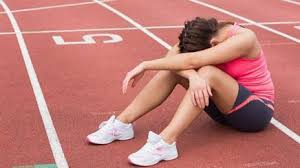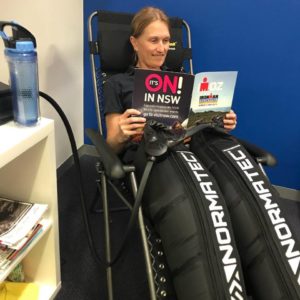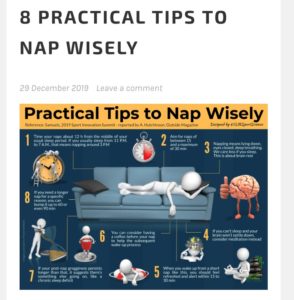Written by Sports & Olympic Physio Britt Caling with information shared from Shona Halson (previous Australian Institute Of Sport Recovery Specialist) and YLMS Sport Science
What is “Recovery”?
 Recovery allows the restoration of physiological (body) and psychological (brain) processes so that you can:
Recovery allows the restoration of physiological (body) and psychological (brain) processes so that you can:
* Compete or train again at a similar level
* Allow adaptations to training to occur
* Increase the quality and quantity of training
* Reduce the risk of developing overuse injuries and
* Reduce risk of overreaching (overtraining) & symptoms
Recovery is therefore essential to performance!
The body needs to be physically stressed (through exercise) to improve fitness. However, the body actually improves when at rest (ie during recovery) as recovery counteracts the physical damage that occurs during exercise.
* Improvements in fitness occur because of rest and recovery AFTER training.
* Competition, training, study/work and social stressors all contribute to fatigue. You need to Recover from all stressors to gain the maximum benefit to performance
Recovery strategies include:
* Rest and sleep
* Hydrotherapy (water strategies)
* Nutrition!!!
* Warm-down and stretch
* Physio & Massage
* Compression & Compression Garments
* Psychological methods – ie. relaxation, mental imagery
Rest and Sleep
Sleep is when maximal physical and psychological restoration occurs
Sleep loss may be related to the development of overreaching & overtraining and:
◦ increases the onset and/or magnitude of pain perceptions
◦ decreased focus and concentration
◦ causes difficulty in determining why errors are made
◦ causes confusion remembering instructions and facts
No matter what sport you do, these above factors are not great for helping you perform and improve, therefore it is essential you get optimal sleep and relaxation for good performance and repeat performance in training.
Did you know?
Your sleep perception (how you felt you slept) is just as important as how much sleep you actually have for recovery and performance!
Just as we wash our hands to ensure we reduce our risk of picking-up bugs that can make us sick, there are some things we can do to help ensure we have good quality of sleep. These factors are about good “sleep hygiene”.
Sleep Hygiene
 Sleep Hygiene refers to strategies to ensure you get good sleep and include:
Sleep Hygiene refers to strategies to ensure you get good sleep and include:
• Maintain a regular sleep-wake cycle (i.e. going to bed and getting up at the same time of the day
• Use napping appropriately (naps should not interfere with night-time sleep and should be less than 1hr)
• Plan fluid/food intake so you are comfortable to go to sleep and so that you don’t wake too many times at night to use the bathroom
• Do not use your bed for work or watching television
• Ensure bed is comfortable and the room temperature is appropriate (19-21°C is often recommended
• Avoid thinking, planning or other mental activities. You will need to work out what strategies work for you to help this (ie. use a notebook to write your thoughts down before sleep)
• Avoid things which may reduce sleep:
— Caffeine
— Alcohol
• Hyper-hydration: In a survey of AIS athletes, frequent waking to go to the bathroom was one of the major reasons for sleep disturbance and may be related to a large consumption of fluid with minimal amounts of sodium in the time between finishing training/competition and bed-time.
and finally, if you get the opportunity to nap, that is a great way to help recovery, but… “nap wisley”
If your recovery from training is not optimal, we can help you!
Our Sports & Exercise Physio’s, Accredited Sports Dietitian or Performance Psychology may all be worth consulting to help you find out where you can improve: ph 07 55006470 or Book Online mygcphysio.com.au for an appointment
